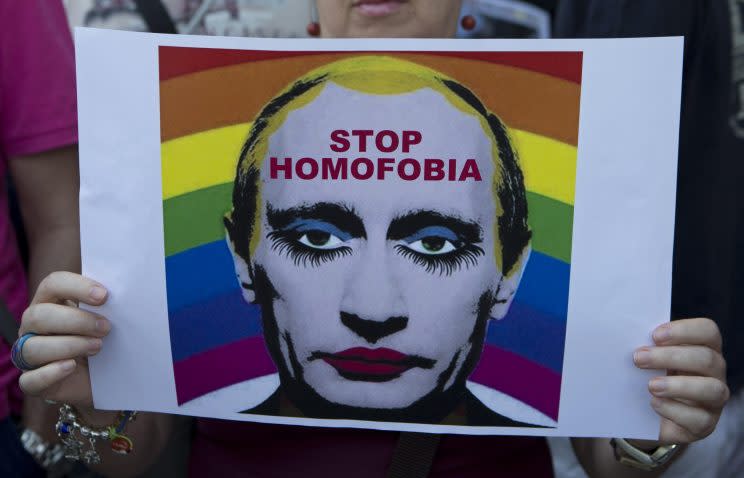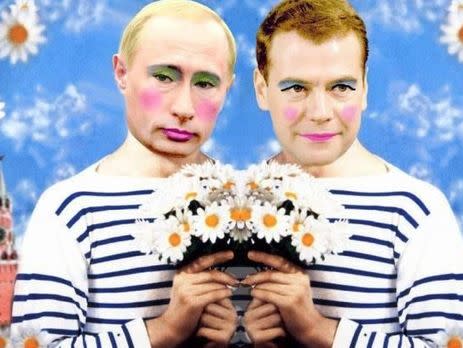Russia bans 'gay clown' picture of Putin

A picture that depicts President Vladimir Putin as a gay clown has been banned in Russia.
The legislation, however, means that news outlets are unable to report exactly which image has been outlawed, but it could be one of several.
An array of Putin-gay-clown memes have appeared on the Internet, but Item 4071 on the Russian government’s list of things that constitute “extremism” specifies: a picture of a Putin-like person “with eyes and lips made up,” captioned with an implicit anti-gay slur, implying “the supposed nonstandard sexual orientation of the president of the Russian Federation”.
One, in which Putin’s face is white in front of a backdrop of a rainbow, became popular four years ago, after Russia made it illegal to “propagandise” to children about “nontraditional sexual relations”, and gay rights protesters were beaten and arrested.
However, Putin’s crackdown down on critics, sexual liberties and online free speech has given rise to similar images.
One thought is that it could be an image showing Putin and Prime Minister Dmitry Medvedev in white face paint and holding flowers. Medvedev signed an order banning transgender people from driving in 2015. While they appear to be mime artists, rather than clowns, we’re not sure the Kremlin is terribly bothered about such a distinction.

According to the Moscow Times, the ban follows a verdict by a regional court in May 2016.
A Kremlin spokesman told Russia’s state news service, Tass, that Putin hadn’t seen the banned clown picture, adding that he was sure it didn’t bother him.
MORE: Donald Trump ‘changes mind’ on Assad after Syria chemical weapon attack
“Kremlin says Putin skilled at brushing off ‘vulgarities’ hurled against him,” reads the state-sanctioned headline on that interview.
Russia passed its first “Internet extremism” laws in 2013, the year after Putin returned to the presidency.
MORE: People are reminding Boris Johnson he wrote an article saying ‘Bravo for Assad’
In 2015, authorities began shutting down websites of Putin’s critics and restricting nearly all anonymous blogs, the Washington Post reported. And Russia’s Internet censor has long allowed public figures to file court complaints if they run across a meme that misrepresents their “personality”.


